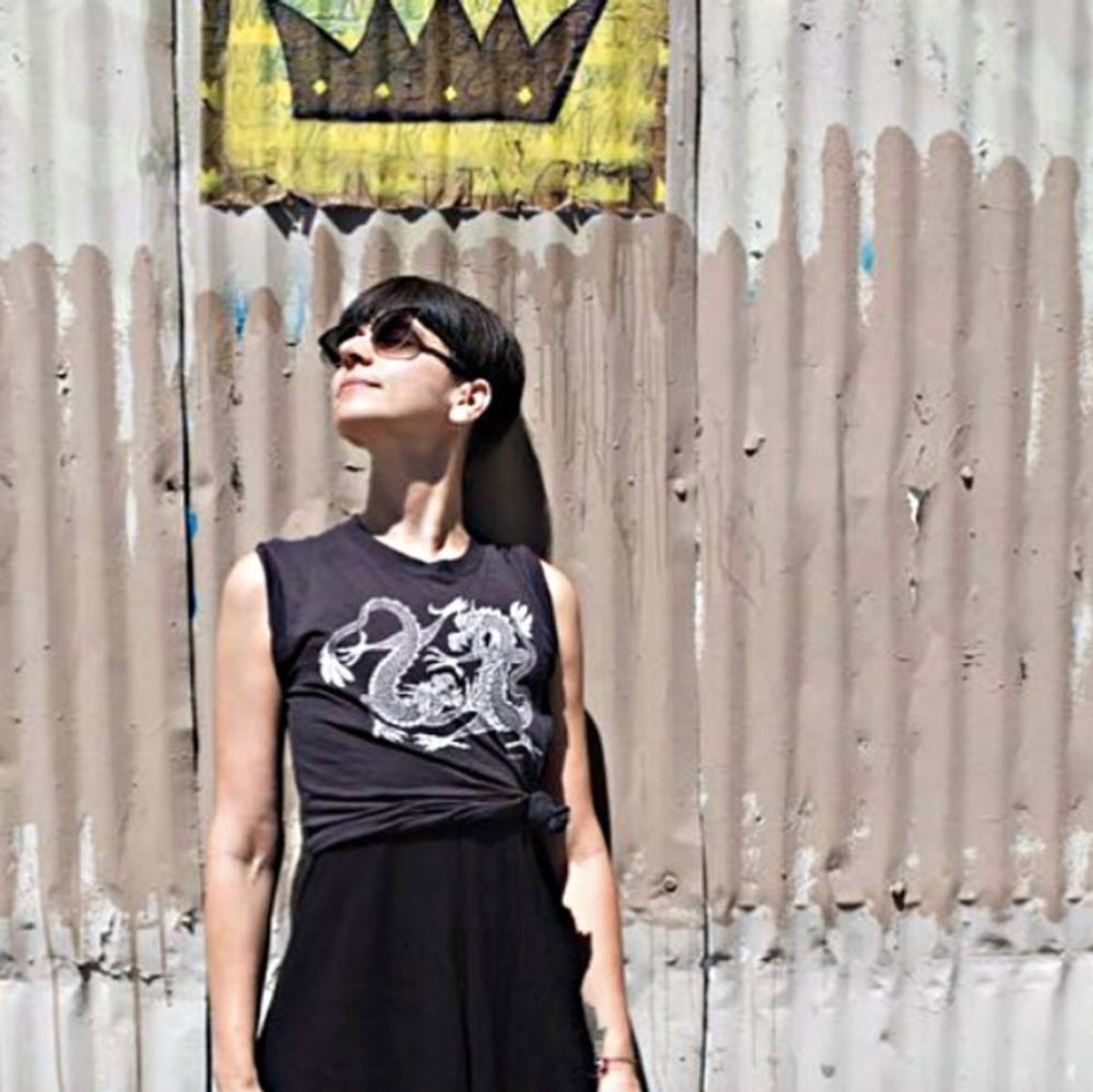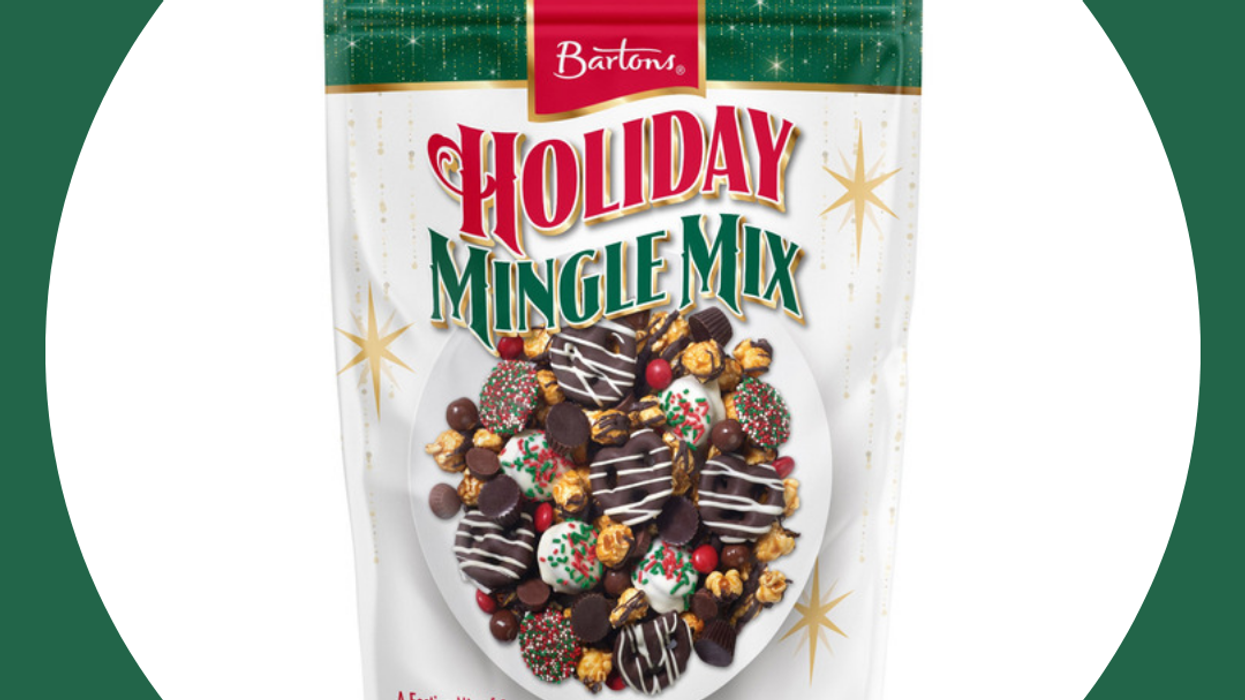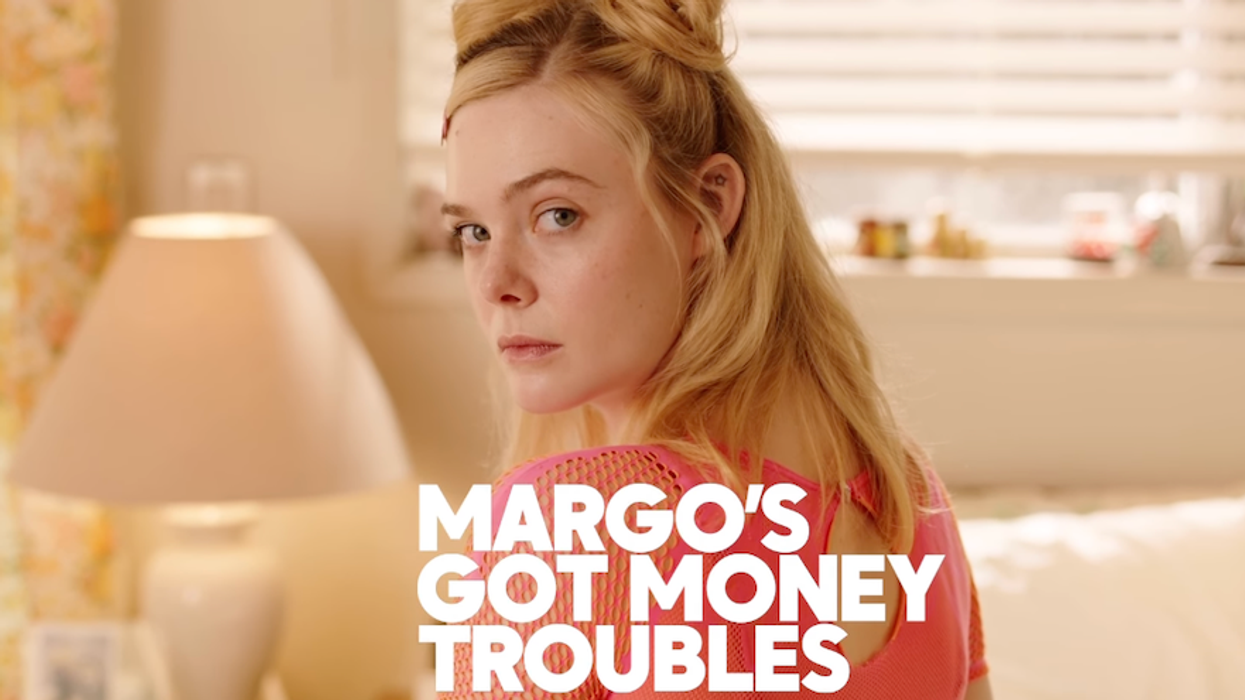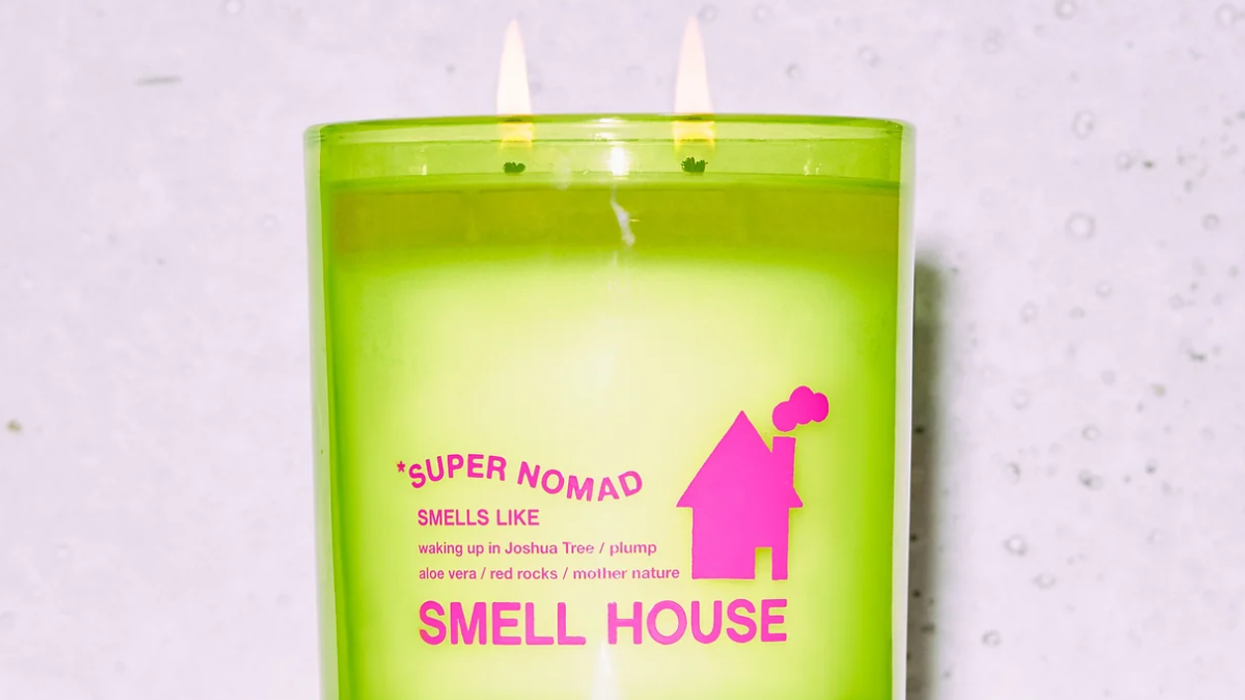How Paige is turning her experience of trauma into a movement to strengthen women.
Here’s What Artist and Activist Samantha Paige Says You Need to Do for Yourself Before You Can Help Anyone Else


Ladies First highlights women and girls who are making the world better for the rest of us.
When she was 21, Samantha Paige was diagnosed with thyroid cancer. Just a few years later, she tested positive as a carrier of the BRCA-1 gene and made the decision to have a preventative double mastectomy and reconstructive surgery. The experience left her feeling disconnected from her body, her emotions, and from the person she felt she really was. She knew she’d be unable to make any sort of positive impact on the lives of people around her if she didn’t feel positive about herself.

“It was daunting to think about the work I needed to do to unravel the trauma and to get present with my emotions, but inevitably it was one or the other,” says Paige. “I was either going to succumb to these emotions or face them straight on. I decided to face them because it was so awful to feel the physical ramifications of what was happening in my body.”
Through her Last Cut Project, Paige aims to broaden the definition of beauty with an inspiring photo series that shows her implant-free. She also aims to address ideas about trauma, vulnerability, and being honest with yourself through her Last Cut Conversations podcast. We asked her about her commitment to live more honestly and why it’s impossible to stand up for yourself and others without first feeling comfortable in your own skin.
B + C: A lot of women have had the experience of someone offering an opinion about what their bodies should do or look like. The weight of all these unasked-for opinions can feel like someone else is making decisions about who you should be. Your Last Cut Project is all about cutting out the forces that separate people from their true selves. Where do you find the strength to do that? And what are the first steps?
SP: What I found was after living a life where I felt like myself up to the point where I had been diagnosed with cancer — this moment of not really feeling grounded in myself — I began to outsource to what I was told would make me happy and how I should look and all of those things. It’s incredibly alienating… I realized that I was a complete stranger in my own life.
I like to say that truth lives in the body. Living that sort of lie, living according to what I thought I should be doing, I was having other things happen like getting migraines all the time or having panic attacks. What gives me the strength to make some of those decisions and to live in my day to day life according to who I am is knowing how awful and isolating it can be and how horrible we can feel when on the outside we’re living according to how others want us to present, but on the inside it doesn’t feel great.
It’s hard to make any change in our lives or to stand up for ourselves if we don’t feel well. My day-to-day life includes meditating every morning, making sure that I exercise, being really mindful of what I eat, making sure I get enough sleep, so then, from a grounded place, I can look at what then needs to shift. [Like] where did I say yes to things when I should have said no? And that’s really one of the principal questions of Last Cut: Where did I agree to looking a certain way or acting a certain way because that’s what society told me I should do, when my internal compass was telling me that it should have been a “No?”
View this post on InstagramNew day. New moment. New hope. Thunderstorms and sunshine.
A post shared by Samantha Paige (@lastcutproject) on
B+C: I think we sometimes use that as a self-defense mechanism though — separating yourself from a thing that happened to your body. But you’re saying that’s not a healthy long-term solution.
SP: That’s what trauma does to us. It doesn’t discriminate and it doesn’t matter necessarily where that trauma comes from. It hides itself in the body. Until we’re brave enough and supported enough to face it and transmute it into something different and more powerful in our lives, it’s an awful thing.
B+C: You’ve channeled your trauma into these really great photos of you that radiate positivity and a comfortableness in your own skin and that highlight the fact that you’ve had a double mastectomy. Have you had any feedback about what it does for women to see bodies like their own represented as being beautiful?
SP: I’ve gotten incredible feedback from the Last Cut Project community. Each of us, on an individual basis, is able to come to terms with the fact that we all look different. There is great beauty in that. Things that might look broken from the outside, you can’t judge from that. For example, I feel more intact and integrated than ever, even though, according to what we’re told a woman’s body should look like, mine doesn’t fall into that narrow category. There’s a sense of tolerance and appreciation and support that has grown in the Last Cut Project community — around not only body image but also just difference and the beauty that we find in our uniqueness.
View this post on InstagramA post shared by Samantha Paige (@lastcutproject) on
B+C: From the very beginning, even before a diagnosis, cancer patients need to advocate for their own care, which can be exhausting and frustrating when you may have very little knowledge of the disease you’re dealing with. But there’s also an element of empowerment that comes with becoming informed and making a choice like the one you did, to have the preventative double mastectomy. Can you talk about that?
SP: That was my experience the first time — I had this diagnosis and within a matter of weeks had my thyroid removed and was getting radiation and definitely felt that sense of handing over my well-being to the medical team without having had enough time to process it. That was a lot of the trauma.
In my mid-20s when I received the BRCA-1 diagnosis, by then I had had a few years to really think about it and do more research and educate myself. I was being tested frequently and monitored up until I made the decision to have the preventative surgery. When my daughter was born that was really the moment for me when I was weighing “Do I want to be going every three months to be having MRIs and mammograms?” Or do I want to step into a place of empowerment and proactively make this decision and turn the whole thing on its head.
All of these decisions are so personal though. Sometimes we’re not graced with the gift of time and we’re told we need to have a surgery tomorrow and you do what you’re told. But when you inform yourself (to the extent that it’s possible), then you go into these decisions feeling more empowered and more clear and there’s less likelihood of long-lasting trauma getting in the way of who you are.
View this post on InstagramA post shared by Samantha Paige (@lastcutproject) on
B+C: I listened to your podcast with Jenna Tosh, Planned Parenthood’s CEO in California, where the two of you talked about this high point in US history — Barack Obama was ending his second term as the country’s first Black president and it looked like Hillary Clinton was on her way to becoming the first female president. There was all this hope for progress… but that didn’t happen. Is there an upside to our current situation? Are we at least becoming more connected and informed?
SP: It certainly is a time of great anxiety. A lot of the conversations now happening in the political arena are ones that we thought we had tabled decades ago. However, I do think there’s a shift that’ll be for the greater good. People in a place of greater privilege have now had that bubble rattled. A lot of the issues that have been brought to the forefront, these aren’t things that are just a problem now, under the current president. These things have always been a problem and a struggle for so many. There are more people waking up to that.
For me, with the Last Cut Project, it’s deepened my desire to do my own work and to show up as present and connected and to serve as much as I can. I think that is happening in a bigger way throughout — we all have the ability to control our own experience and we all have to ability to control how we show up for others. It’s having that conversation about “How am I showing up [for] my community?” when we see negativity out there in the world. I might not be able to change it, but how can I change things in the way I’m living? How can I be more tolerant? How can I promote tolerance?
With Last Cut Conversations, I’ve really geared the podcast to focus more on the issue of freedom, of what truth means to us, what showing up means, what activism means — and then living that. We may not be able to change everything from the top down, but I know that what I do has an impact on my life, on my daughter’s life, and on my community. There is a level of personal responsibility that is far more important than just being angry and pointing fingers. Now more than ever, we can’t take that for granted.
What are you doing to feel more connected? Tell us about it on Twitter.
(Images by Lisa Field for Last Cut Project)

















